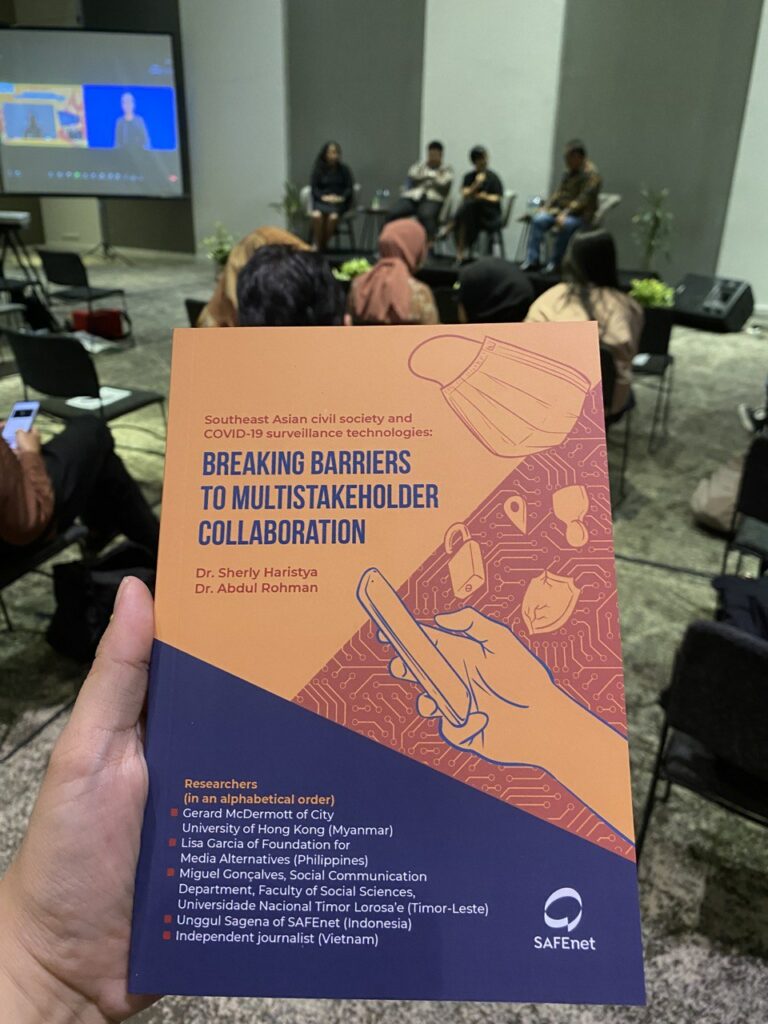These days the relationships between civil society and state authorities have reportedly become strained. The COVID-19 pandemic has even further magnified the damaged relationship between authorities and civil society, including those in the Southeast Asia region. Civil society was perceived as the “enemy”, which necessitated surveillance and monitoring.
On the other hand, the pandemic has brought enormous challenges that require state and non-state actors to collaborate to be able to tackle the pandemic together.
SAFEnet’s latest research reveals how civil society played a role as a “sparring partner” in advancing the use of safe and secure COVID-19 surveillance technologies to tackle the pandemic in six Southeast Asian countries, Indonesia, the Philippines, Singapore, Vietnam, Timor-Leste, and Myanmar. This was however more observable in countries where space and opportunity for civil society to shape digital policies were more available.
Seeding, maintaining, and strengthening local and regional civil society networks are therefore vital in building bridges that connect authorities, civil society, and the private sector to promote healthy multi-stakeholder collaboration.
This report also highlights the need for the authorities, together with non-state groups, to articulate how existing standards, such as the Siracusa Principles, can be applied to the use of digital technologies during public health emergencies.
Download the English report (Indonesian version)

